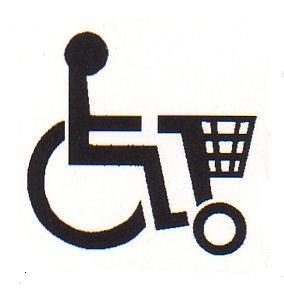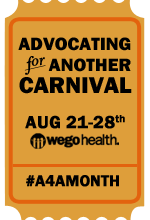As I have been enervated by symptoms, almost leading to the feeling of being trapped in a prison surrounded by invisible tormentors.
However, I was not only trapped inside my own body; a metaphorical prison whilst enduring persistent and unrelenting symptoms but these were also keeping me inside my home due to their severity as well as the fear of the possibility suffering another fall in public. It was as if the symptoms were acting as prison guards, keeping me imprisoned in my home and the same four walls in which I already spent the majority of my time, to begin with. I longed for adventure, to experience activity and excitement, like the characters in the books that had become my constant companion as I convalesced in my bedroom.
Adventure. Spontaneity. Two words that are not synonymous with life with a neurological condition. Going on an adventure when living with any chronic illness requires planning with almost military precision, and is reliant on a number of factors such as how you are feeling on the day that has been set out for the planned adventure.
Personally, for me, big adventures are also dependent on whether or not my legs are being cooperative on the day, and if they are somewhat weak and the wheelchair is needed then it needs to be a mild dizzy day so the motion sickness does not present itself! Spontaneity is near possible when living with a chronic illness!

During a short reprieve from my condition and its accompanying symptoms, I made the decision to make a trip to Hay-on-Wye with my carer on a sunny afternoon in late May. I say that it was a reprieve, but the symptoms were very much there but the severity of them was not as bad as it had been, so it did feel somewhat of a reprieve but at this point it felt that my condition and its symptoms had been very much in the driving seat dictating everything, from how I was feeling to what I could and could not do and I, was tired. I was ready to finally take back control and be the one in the driving seat instead of being the passenger on my own ride.
Hay-On-Wye is a small market town located in Powys, West Wales is a place that I had been before, but have desperately wanting to return to since. It’s most famous as being the town of books with an impressive number of bookshops adorning the streets of the quaint little town. As a massive bookworm myself, this beautiful place is like a little piece of heaven for me, and I was really excited to make a return to this mecca of literature.

The day itself was beautiful with majestic blue skies with a warm gentle breeze. It was a beautiful start, the only problem being my extremely trembling legs, as unfortunately the place being somewhat unsuitable for a wheelchair, meant that I had to rely on what felt like incredibly unreliable legs. But even that wasn’t going to stop me as somehow despite how tough things have been, I finally found my sparkle again. And despite wobbly legs, several near falls and major fatigue I had a great time in this wonderful little town. I was able to browse the many quaint and unique bookshops, treated myself to lunch and just sat down and soaked in the sights and a little vitamin D. It was a great day; probably the best I’ve experienced for a long while.
Above all, I learned just how much control I allowed my condition to have on my life, yes, some of this was because I had no physical control over this such as the severe weakness and trembling in my legs. However, I let myself believe that because of the severe symptoms I was not able to do anything at all. I thought this was my reality, when in fact it was only my perception of the situation. On the day I discovered determination and strength I never knew I possessed. It felt like pain had my legs trapped in its vice-like grip, but determined to seek out lots of books, I carried on.
Yes, my legs were weak and uncooperative, ready to give way in a blink of an eye, but there are plenty of ways to still an enjoy a day out. The use of a wheelchair, for example, or by taking regular breaks as we did in Hay (and the perfect excuse to enjoy a hot chocolate!). We may not be able to enjoy a long day out, or a day out like we used to but with appropriate accommodations, we can still enjoy a day out somewhere special. Are there any perceptions regarding your condition that you think to be a reality?
Admittedly, I perhaps overdone things that day given the fatigue and amount of pain I experienced days after but even that cannot tarnish the memories and the experience of the day. And above all, it felt brilliant to be back in the car, even if I’m not always in control…
















